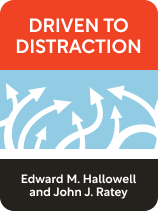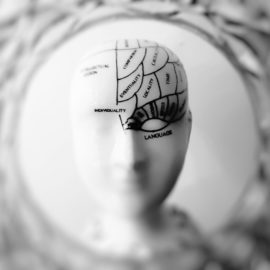

This article is an excerpt from the Shortform book guide to "Driven to Distraction" by Edward M. Hallowell and John J. Ratey. Shortform has the world's best summaries and analyses of books you should be reading.
Like this article? Sign up for a free trial here.
How does an ADHD misdiagnosis happen? How can you avoid making this mistake?
ADHD misdiagnoses happen a lot more often than you think. In Driven to Distraction, Edward M. Hallowell and John J. Ratey emphasize that it’s important to rule out other conditions before deciding on an ADHD diagnosis.
Here’s why you need to be careful when diagnosing ADHD.
Rule Out Other Conditions
There are several conditions that can look like or overshadow ADHD. There are also many conditions that can co-occur with ADHD. It’s important to distinguish between ADHD and these conditions to select the most effective treatments and avoid an ADHD misdiagnosis.
(Shortform note: Misdiagnosis is especially likely if the doctor only focuses on one or a few symptoms and ignores others. Diagnosing someone based only on their most obvious symptoms can lead them down the wrong treatment paths.)
Conditions that can co-occur with, be mistaken for, or mask the symptoms of ADHD include:
Depression and anxiety. Both of these can occur as secondary symptoms of ADHD or as separate conditions from it. If depression or anxiety is a secondary symptom, treating ADHD can help ameliorate it, but if it’s a co-occurring disorder then it will likely need a separate treatment regimen.
(Shortform note: Depression and anxiety co-occur with ADHD at extremely high rates. Approximately one-third of people with ADHD have also suffered from depression, and half of people with ADHD have an anxiety disorder.)
Substance abuse. This may also be a secondary symptom of ADHD or its own disorder. Some people with ADHD find that substances like alcohol or drugs mitigate their undesirable symptoms, which can lead to excessive use, dependence, or addiction. If it’s a secondary symptom, treating ADHD can potentially resolve the substance use problem, but if it occurs as a different disorder it may need a separate treatment.
(Shortform note: People with ADHD often use substances to self-medicate for their symptoms, which makes treating the substance use tricky. People self-medicate because it works, meaning the positive aspects of controlling their symptoms outweigh the negative effects of the substance use. In cases where substances—marijuana, for instance—aren’t abused, they can be an effective way to manage ADHD.)
Certain personality disorders. Some aspects of ADHD may mirror symptoms of personality disorders that would require a separate diagnosis. The emotional difficulties associated with ADHD, for example, can look similar to the extreme mood changes of bipolar disorder. The feelings of rage and sensitivity to rejection can look like borderline personality disorder. The impulsivity and extreme frustration can look like antisocial personality disorder. In all of these cases, a person with ADHD may have been misdiagnosed with one of these disorders, leading to ineffective treatment.
Other learning disorders. The authors specifically discuss dyslexia, which they say is the most common learning disorder, as well as autism spectrum disorder, and other cognitive disorders. They estimate that the rate of co-occurrence between ADHD and other learning disorders, depending on how they’re defined, ranges between 10% and 80%.
The authors also emphasize that it’s important to avoid diagnosing yourself and that you should always consult with a professional if you suspect you have ADHD so you don’t mistakenly produce an ADHD misdiagnosis.
(Shortform note: While an official diagnosis is ideal, it may not be accessible to everyone with ADHD. For one thing, the specific tasks involved in getting a diagnosis—researching providers, setting appointments and sticking to them, and remembering personal history—also happen to be tasks that are difficult for people with ADHD. Additionally, high healthcare costs and a lack of insurance can make diagnosis inaccessible to many, and it may be difficult or impossible to find a doctor knowledgeable about the condition in your area.)
Is “Disorder” an Accurate Term?
There is nothing abnormal about having a disorder of any kind, and many Americans have learning or personality disorders. That being said, there are many in the ADHD community—including Hallowell himself—who are pushing to change the name of the condition to remove the word “disorder.” They argue that ADHD is just a set of traits that includes both strengths and weaknesses and that “disorder” doesn’t make this distinction clear as it suggests a disease that needs to be cured, when ADHD is really just a different—not necessarily worse—way of functioning.
Some have suggested just dropping the word “disorder” from the name and calling it attention deficit (and/or) hyperactivity. In a recent article, Hallowell and Ratey suggest the term variable attention stimulus trait, or VAST. They argue that this name removes the medical-sounding terms “deficit” and “disorder” and emphasizes the beneficial traits of the condition. Another term that removes the terms “deficit” and “disorder” is neurodivergent, though this applies to a much broader range of conditions than ADHD alone. This refers to any condition that causes your brain to function differently from the way a neurotypical brain functions. The conditions the authors discuss above (personality disorders and learning disorders, as well as ADHD itself) are all examples of neurodivergence.

———End of Preview———
Like what you just read? Read the rest of the world's best book summary and analysis of Edward M. Hallowell and John J. Ratey's "Driven to Distraction" at Shortform.
Here's what you'll find in our full Driven to Distraction summary:
- What ADD is, theories on the possible causes, and potential treatments
- How our knowledge of ADD has changed since the book’s republication in 2011
- Tips for how to minimize your negative symptoms and make the most of your strengths






